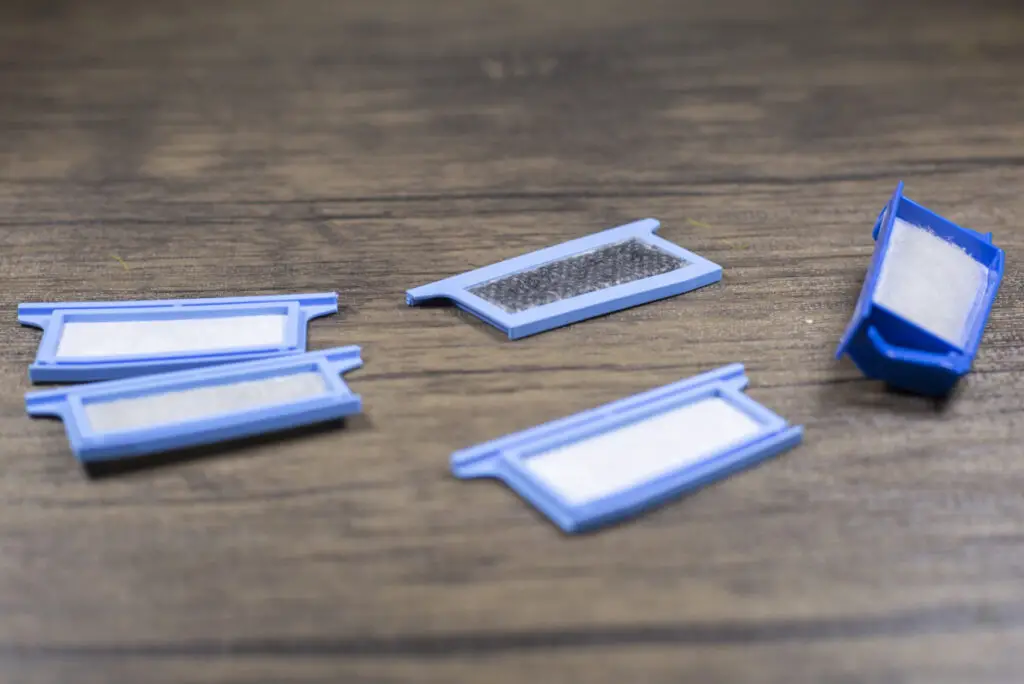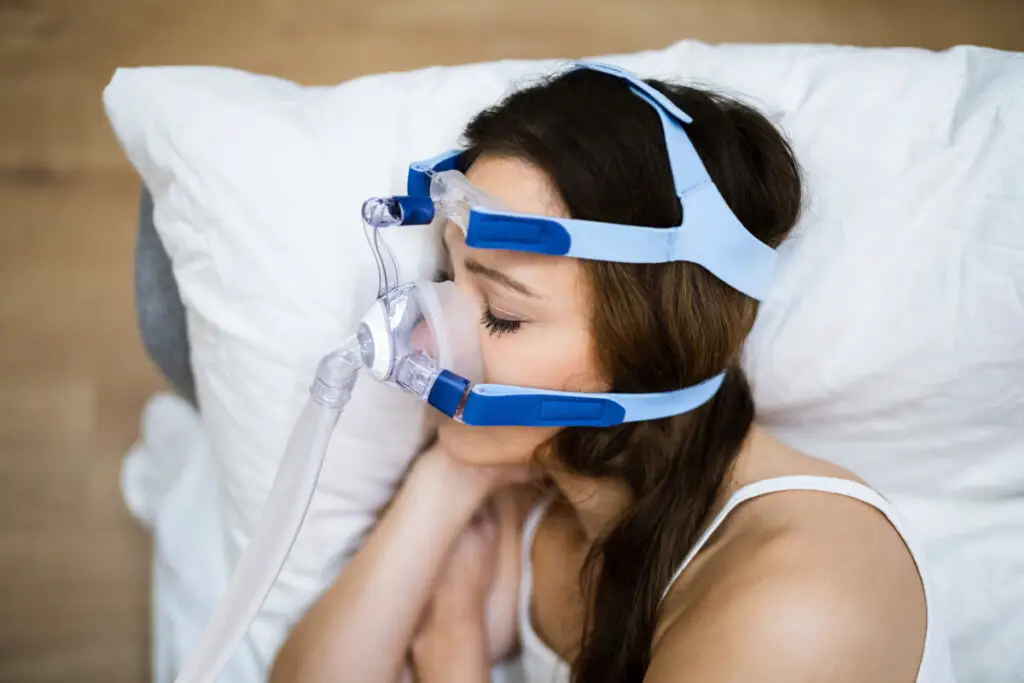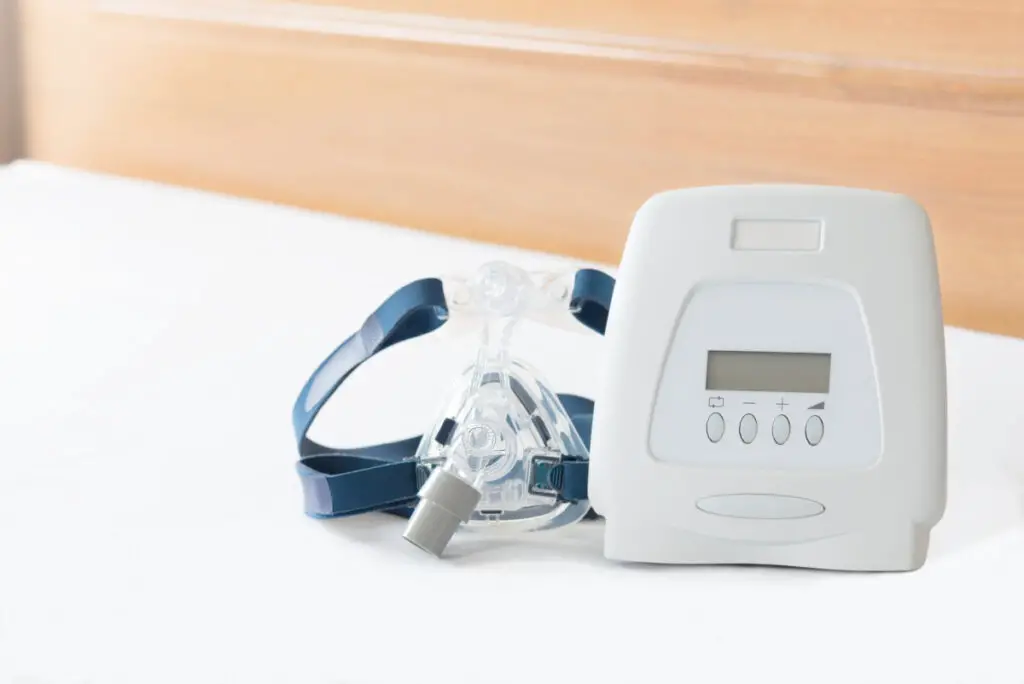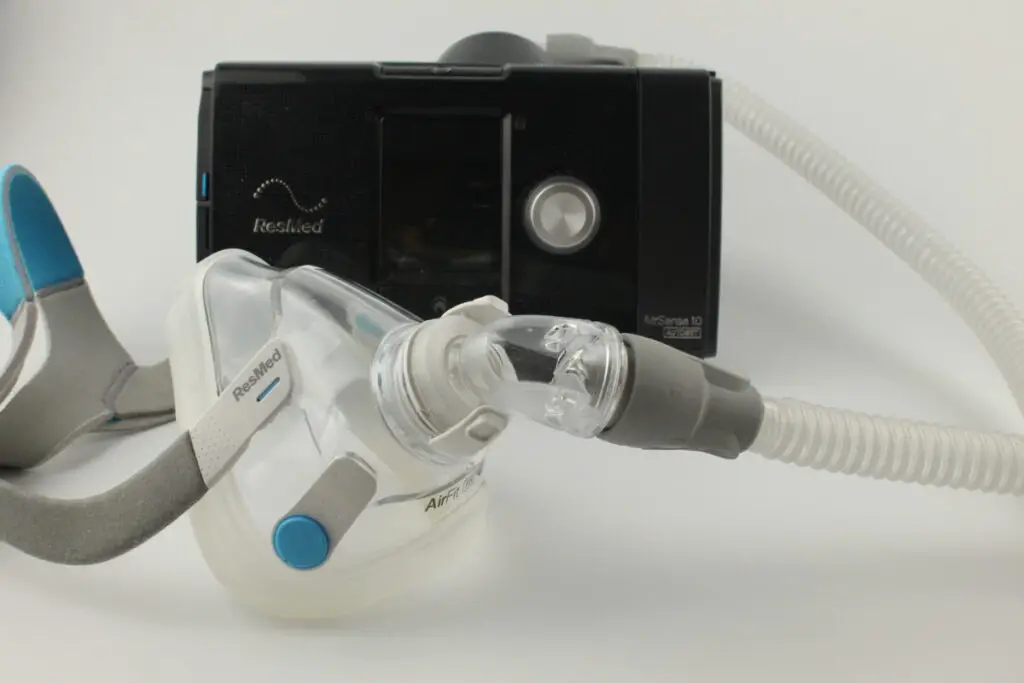CPAP machines can keep turning off due to overheating in the motor, constricted airflow, or dust build-up in a clogged filter. Improper power connections, electrical issues, or damaged wiring can also cause a CPAP to repeatedly turn off.
CPAP machines provide essential relief to people that suffer from sleep apnea, a disorder that causes random, involuntary pauses in breathing while the person is asleep. If you’re on CPAP therapy, and your machine starts acting up and turns off automatically, it is crucial to diagnose and fix the problem quickly.
This article details all the potential reasons why your CPAP machine could be turning off, and how to easily diagnose and fix the problem.
- A dirty filter, electrical issues, and overheating or faulty motors commonly cause CPAP machines to turn off.
- Air leaks and a loss of pressure can also lead to the CPAP machine repeatedly turning off.
- Most problems can be fixed, however any electrical or wiring issues should be repaired by the manufacturer, or a qualified technician or electrician.
How A CPAP Should Work
CPAP (Continuous Positive Airway Pressure) machines are a device used by sleep apnea patients. This disorder is characterized by problems in muscles supporting the tongue and uvula, which causes the two to relax and fall against the soft palate when the person lies down. This occurs in irregular episodes and results in discomfort, snoring, wheezing and chronic fatigue.
To understand why your CPAP system is acting up and repeatedly turning off, it’s important to understand know how it should work:
- CPAP machines have a motor that draws surrounding air inside the system.
- This airstream first encounters air filters (disposable paper filter, reusable foam filter, bacterial filter, or a combination of the three) which remove dangerous airborne contaminants.
- The motor then adjusts the air pressure according to the preset levels (which depend on the severity of obstructive apnea).
- As the pressured air is propelled forward, it passes through a heater. A humidifier (optional) then adds mist to the warm air, as the increased moisture content in the air often makes it easier to breathe.
- The processed air is sent via an oxygen tube to a mask (nasal cannula /half or full face mask). While the patient inhales air, the expired carbon dioxide is released via small openings at the side of the mask.
The continuous pressure created artificially by the machine keeps the tongue and uvula from blocking the respiratory tract, and is why CPAP therapy is so effective against sleep apnea.
Reasons Why Your CPAP Machine Keeps Turning Off
If your CPAP machine keeps turning off during use, here are the reasons you should look for:
Clogged Filter

Air filters have a specific capacity. Once saturated with dust, debris, pollen, and microbes, they cannot effectively filter any further. This results in two problems:
- The airborne pollutants escape the filter and build up in the system, damaging the components.
- The clogging constricts the airflow, which directly impacts the therapy. This also causes the motor to overheat, which in turn causes the CPAP machine to turn off.
Frequent overheating of the CPAP machine motor, in addition to possible damage to the heater, humidifier, or dust build-up in the oxygen tube and mask – can cause your CPAP system to turn off frequently.
Refer to your user manual, remove and check the filter. If it appears black or the pores are swollen, your filter likely needs replacement.
Fix
Cleaning the air filters often and replacing them regularly is the only fix, as well as a crucial preventative measure here.
You should dust and rinse the paper and foam filter with tap water and mild detergent at least every two weeks (or sooner if your area has poor AQI).
Note that mold growth can also saturate and damage the filter, so maintaining adequate humidity levels (30 to 50%) and a moderate temperature indoors is crucial.
At the same time, avoid using candles and heating appliances /equipment like furnaces and gas stoves near the device.
- You can also run an air purifier alongside the CPAP machine to prolong the filter’s lifespan.
- Bacterial filters cannot be washed and should be replaced every four weeks.
- The disposable paper and reusable foam filters should also be changed after four weeks and six months of use, respectively.
Air Leaks

Intensive air leaks through the CPAP machine can cause the system to stop working and turn off.
This problem is also related to a CPAP machine losing pressure.
Cracks in the tube, mask, or improperly sealed mask can all allow pressurized air to escape through the system.
Fix
Inspect your oxygen tube and mask for cracks.
- This is indicated by mist collection or fogging inside the mask walls (as the air is humidified).
If you find either or both parts broken, replacing them is the only solution.
Note that it is also important for the mask to be tightly secured on the face, as loose seals allow the air to escape and, thus, reduce the pressure.
Here’s how to tighten the mask properly:
- Wear the mask when in a sitting position.
- Turn on the CPAP machine.
- Then, lay down and use the mask straps to secure the seal.
- Gently pull the mask away from the face to inflate the lower side, and then pull it up.
If the mask is still leaking air, try buying a smaller-sized mask.
Plentiful Air has a more detailed troubleshooting guide on how to fix a CPAP machine that is losing pressure available here.
Connection

CPAP machines come with a power cord that you need to plug into a compatible power source (which varies for each device). An incorrect connection or damaged wiring is one of the first things you should check if your machine keeps turning off.
Try connecting other electronics to the board, and see if they are working. If there is no issue with the board, consider inspecting your machine’s power cord for bends or visible damage.
Remember that any recent voltage surge or overheating can also damage the cord.
If you are concerned the problem lies within the internal wiring of the system and not the cord, it is better to call an electrician.
Fix
Replacing the power cord and/or repairing the wiring will resolve the problem.
Broken Motor

The CPAP motor is crucial to maintaining continuous airflow, and is equally important in the pressurizing of the air for effective therapy.
Impact, voltage surges, and dust and debris build-up inside the machine can damage the motor, which can cause your CPAP to turn off automatically.
In these conditions, the motor frequently overheats and usually makes weird rattling sounds during operation (this is due to friction against dust or other particulate matter)
Fix
The motor requires a professional to fix it, and it’s best to call the customer service of your CPAP machine’s brand for help.
Although, a repair can often cost a fortune, and if the warranty is not applicable, it is usually more economical to simply buy a new CPAP machine.
Other Things To Look For
Here are some other factors you should check if your CPAP machine keeps turning off:
- Ensure your mask is on and properly secured on your face before turning on the machine.
- Make sure the humidifier lid is closed.
- Remove and reinsert the air filters.
- Make sure the machine is in an open space and walls, or surrounding objects are not blocking the airflow.
Frequently Asked Questions
What Happens When A CPAP Shuts Off?
If the CPAP machine shuts off on its own, it renders the therapy ineffective, which puts the patient at risk of obstructive sleep apnea episodes. At the same time, frequent interruptions in operation can damage the motor, as well as the wiring.
Persistent snoring, fatigue after waking up, and general discomfort are some signs that indicate your CPAP machine is not working properly. You can also check the application connected to your CPAP device that records your sleep data to confirm the problem.
Does The ResMed Airsense 10 Automatically Turn Off?
A ResMed Airsense CPAP do not automatically turn off normally, and if it does, it indicates a malfunction.
This confusion often arises because of the AutoSet feature on ResMed AirSense 10. Remember that the AutoSet feature enables the device to adjust the pressure by assessing the user’s breathing through sleep onset and expiratory pressure.
It does not allow the user to set a timer to automatically turn the machine on or off.
